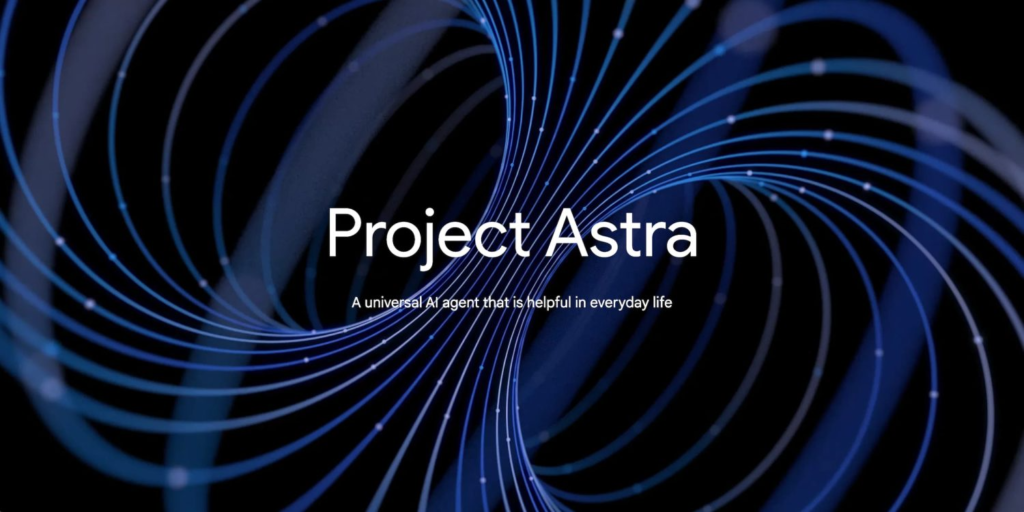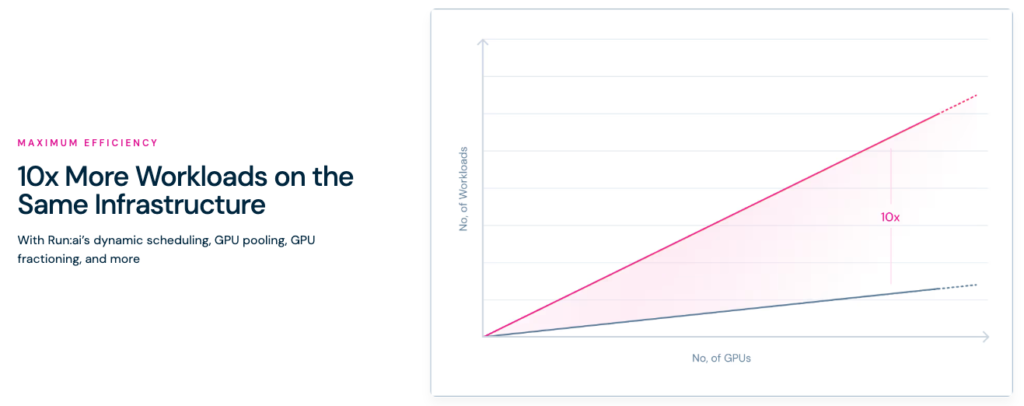If you have been investigating AI Agent Frameworks (such as Swarm, Phidata, LangGraph, Autogen, CrewAI, Vertex AI or Langflow) you now have a new option from Hugging Face called Smolagents. Smolagents is an extremely lightweight option that differs from other frameworks in that it allows AI agents to write Python code directly instead of using JSON calls, which reduces the steps required by 30%. Definitely check this one out if you are developing AI agents and don’t need the comprehensive features or enterprise-grade capabilities of the larger frameworks.
Among other news: Microsoft to invest $80 billion on Data Centers in 2025, xAI launched a new standalone iOS app for Grok, Nvidia acquired Run:ai that can run up to 10x more AI workloads on GPUs than typically possible (and will also open-source the platform), and Meta just announced that they will start allowing AI-generated characters on Facebook on a large scale.
THIS WEEK’S NEWS:
- Microsoft To Invest $80 Billion in AI Data Centers in 2025
- Google Makes Gemini Consumer Growth Top Priority for 2025
- xAI Launches Grok Standalone App for iOS
- Hugging Face Launches SmolAgents: A Minimalist Framework for Building AI Agents
- Nvidia Completes $700m Run:Ai Acquisition, Plans to Open-Source
- Meta to Launch AI-Generated Characters On Facebook
Microsoft To Invest $80 Billion in AI Data Centers in 2025
https://blogs.microsoft.com/on-the-issues/2025/01/03/the-golden-opportunity-for-american-ai

The News:
- Microsoft just announced that they will invest $80 billion to construct AI-enabled data centers during their fiscal year 2025 (ending June 30, 2025), with more than half of the investment planned for the United States.
- The new data centers will be equipped with specialized hardware, including Nvidia GPUs, to train AI models and deploy cloud-based applications worldwide.
- Microsoft also plans to train 2.5 million Americans in AI skills during the fiscal year, creating jobs in construction, steel manufacturing, and advanced cooling technologies.
- Microsoft’s recent quarterly results showed a 33% year-over-year increase in Azure cloud services revenue, with AI services contributing 12 percentage points to that growth.
My take: Microsoft calls this “The Golden Opportunity for American AI”. As a reference, here in the EU, the European Commission announced in January an “AI Startups and Innovation Package” for AI Factories, InvestEU, Horizon Europe and AI infrastructure. The total worth of that package is €4 billion over four years, up until 2027. Just put that number next to Microsoft’s investment of $80 billion in just 2025 and it really makes you wonder where we in Europe will end up by 2030. Also, a recent study showed that European “Generative AI” startups have received approximately €2.37 billion in private funding, which is notably less than US competitors – OpenAI and Anthropic alone have collected approximately €14.3 billion in funding.
Read more:
- The Golden Opportunity for American AI – Microsoft On the Issues
- EU Artificial intelligence ambition
- Generative AI in the European Startup Landscape 2024
Google Makes Gemini Consumer Growth Top Priority for 2025
https://9to5google.com/2024/12/29/report-google-gemini-2025/

The News:
- Gemini, Google’s AI assistant platform, will be the company’s primary focus for consumer expansion in 2025, with plans to integrate it across all major Google services.
- Google expects the Gemini app to reach 500 million monthly users, joining other Google services like Maps, Search, Gmail, Android, Chrome, Play, and YouTube that already have over 2 billion users.
- The company plans to introduce significant AI features in the first half of 2025, including Project Astra, which aims to be a universal assistant that works across “any domain, any modality or any device”.
- DeepMind CEO Demis Hassabis confirmed they will “turbo charge” the Gemini app, with major product evolution expected over the next two years.
My take: When Geoffrey Hinton advised Google to buy DeepMind a decade ago, he described Demis Hassabis as: “I don’t think I’ve ever met anybody more competitive. Demis is competitive at the level of people who get gold medals in the Olympics”. Hassabis was a child chess prodigy who at one point was the No. 2 rated player in the world, and shipped the popular video game “Theme Park” in the 1990s. After years in the gaming industry he went on to co-found DeepMind that was acquired by Google in 2014. When Demis Hassabis says he will “turbo charge” the AI progress of Google, you can be sure that things will begin moving at an amazing speed.
Read more:
- Scaling Gemini for end users will be Google’s biggest focus in 2025
- Google’s Demis Hassabis tasked with turning AI research into profits
xAI Launches Grok Standalone App for iOS
https://apps.apple.com/au/app/grok/id6670324846

The News:
- xAI, Elon Musk’s AI company, is beta testing a standalone iOS app for its Grok chatbot, marking the first time the service will be available outside of X (formerly Twitter).
- The new app features real-time web and X data access, text rewriting, paragraph summarization, Q&A capabilities, and image generation from text prompts.
- Grok also includes an unrestricted image generation model called Aurora, which allows creation of images using public figures and copyrighted material.
My take: According to the Grok App Store page, Grok is “designed to be maximally truthful, useful, and curious” and already has 749 ratings at an average of 4.9 since it’s first release on the App Store just two weeks ago (how many of these do you think are legit reviews?). I think the main issue with all of Elon Musks services (X, xAI, Grok) is not related to features themselves, but instead with trust in the platforms. According to Washington Post, Musk’s influence on X eclipses all members of the incoming Congress, combined. I still have X installed on my phone, and weeks before the election I got daily notifications from X pushing out propaganda tweets by Elon Musk. I didn’t change any setting and those notifications stopped right after the election. I believe that I am open to new platforms, but I feel very reluctant on sending any of my data to xAI. If xAI wants to succeed they need to work hard in positioning themselves as a neutral and bias-free option to Claude and ChatGPT, and with the current version of Aurora creating images of copyrighted material I’m not even sure that this is the way they want to go.
Read more:
- xAI is testing a standalone iOS app for its Grok chatbot | TechCrunch
- Elon Musk’s X audience dwarfs those of Donald Trump and Joe Biden – Washington Post
Hugging Face Launches SmolAgents: A Minimalist Framework for Building AI Agents
https://huggingface.co/blog/smolagents

The News:
- Hugging Face initially launched as a chatbot app for teenagers in 2017, but is now one of the most popular data science and machine learning platforms globally. Hugging Face is a place to host AI models, train them, and collaborate with your team.
- SmolAgents is a lightweight open-source library that enables developers to create AI agents with just three lines of code, featuring a core codebase of only about 1,000 lines.
- The framework introduces CodeAgent, which allows AI models to write Python code directly instead of using traditional JSON formats, reducing the number of steps by 30% while improving benchmark performance.
- The library supports multiple language models, including those from OpenAI, Anthropic, and Hugging Face’s own models, accessible through their Transformers library, Inference API, or LiteLLM.
Example agent code:
from smolagents import CodeAgent, DuckDuckGoSearchTool, HfApiModel
agent = CodeAgent(tools=[DuckDuckGoSearchTool()], model=HfApiModel())
agent.run("How many seconds would it take for a leopard at full speed to run through Pont des Arts?")My take: 2025 will be very focused on AI agents, and SmolAgents is my new favorite among all frameworks, especially for prototyping. Just look at the 3-line example above, and think about how you could use agents in your company.
Read more:
- Introducing smolagents: simple agents that write actions in code.
- GitHub – huggingface/smolagents: 🤗 smolagents: a barebones library for agents. Agents write python code to call tools and orchestrate other agents.
Nvidia Completes $700m Run:Ai Acquisition, Plans to Open-Source
https://techcrunch.com/2024/12/30/nvidia-completes-acquisition-of-ai-infrastructure-startup-runai/

The News:
- Run:ai develops software that optimizes AI hardware infrastructure, helping organizations maximize GPU efficiency and manage AI workloads more effectively.
- Run:ai can run up to 10x more AI workloads than typically possible by intelligently distributing tasks across GPUs and avoiding memory collisions.
- Run:ai is currently exclusive to Nvidia GPUs, however the company will open-source the software, enabling competitors like AMD and Intel to adapt it for their hardware.
- The acquisition initially faced regulatory scrutiny from both the European Commission and U.S. Department of Justice over competition concerns, but received final approval in December 2024.
My take: Run:ai has a unique offering with up to 10x more AI workloads using the same hardware. This is a highly competitive advantage for NVIDIA, and while NVIDIA will release Run:ai as open-source, it still remains to be seen how useful it is in practice on competitive hardware and how much work it involves in making it run on that hardware.
Read more:
- Run:ai – AI Optimization and Orchestration
- Nvidia completes acquisition of AI infrastructure startup Run:ai | TechCrunch
Meta to Launch AI-Generated Characters On Facebook
https://www.foxbusiness.com/media/meta-invest-ai-generated-characters-profiles-drive-up-engagement

The News:
- Meta is developing AI-generated profiles that will exist alongside regular user accounts on Facebook, with the ability to create and share content, complete with bios and profile pictures.
- Meta’s AI Studio will allow users to create and interact with AI characters tailored to specific interests, offering help with cooking, fashion advice, caption generation, and daily affirmations.
- “We expect these AIs to actually, over time, exist on our platforms, kind of in the same way that accounts do,” states Connor Hayes, Meta’s vice-president of product for generative AI.
My take: Over the past four years Meta invested over $45 billion in VR technologies, and now they are pouring money into AI-generated avatars that will soon start flooding Facebook. In 2021 Mark Zuckerberg wrote that the goal of Meta is to “bring the world closer together”. With that in perspective you kind of understand their big focus on VR, but launching AI-generated avatars makes no sense at all to me. According to a recent study, only 19% of all teens in the US use Facebook daily, and that figure is dropping. Facebook is quickly becoming a place for older people that average around 40 minutes per day on the service, and it will be interesting to see how digital avatars filling the feed will affect these figures going forward. Will they make people spend less or more time on the platform? What do you think?
Read more:
